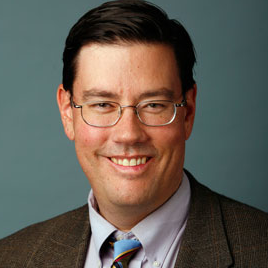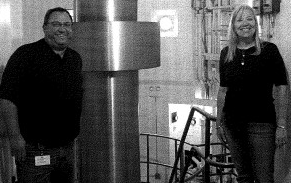Submitted by Beau Hodai on
This story is part of a collaboration between In These Times and the Center for Media and Democracy, as part of a special series on ALEC's recent conference in Arizona.
 With the 2012 legislative season and another episode of the Great American Campaign Circus dawning over the nation, Arizona may find itself the proving grounds for possible reform in the age of "pay-to-play" politics.
With the 2012 legislative season and another episode of the Great American Campaign Circus dawning over the nation, Arizona may find itself the proving grounds for possible reform in the age of "pay-to-play" politics.
In January, Arizona Rep. Steve Farley (D-Tucson) will introduce the "ALEC Accountability Act of 2012," which is aimed squarely at the less-than-transparent American Legislative Exchange Council (ALEC), a national organization that advances corporate-authored model legislation at the state level through the use of a hidden distribution network of special interest cash.
ALEC's Million Dollar "Scholarship" Fund to Be Scrutinized
This network, known as the ALEC "scholarship fund," holds more than $1 million for state lawmakers to attend various functions (commonly referred to as "junkets"). At these functions, lawmakers are literally wined and dined by lobbyists seeking to advance the legislative agendas of their clients.
To Farley and proponents of the bill, the problem is absolutely clear. In a nutshell: ALEC is a lobbyist organization, but its corporate backers operate out of public view. "If voters knew that [their lawmaker] was receiving a huge donation from BP, for example, then they might be less likely to vote for them," Farley says. "They would understand that their best interests were not necessarily being looked after. We should be as transparent as possible. ... We can't pretend that [legislation] was our idea when it came from ALEC and from a multinational corporation that had its own interests in mind."
 ALEC, a 501(c)3 not-for-profit that says it does not engage in lobbying activity, refuses to publicly disclose the identities of its donor/member corporations. There is currently no requirement -- in Arizona or in any other state -- for either organizational or lawmaker disclosure of "scholarship fund" donor identities.
ALEC, a 501(c)3 not-for-profit that says it does not engage in lobbying activity, refuses to publicly disclose the identities of its donor/member corporations. There is currently no requirement -- in Arizona or in any other state -- for either organizational or lawmaker disclosure of "scholarship fund" donor identities.
Some Real Sunlight in Government for the Valley of the Sun
The ALEC Accountability Act -- which, in full disclosure, is partly inspired and based on In These Times investigations -- seeks to:
1. Amend Arizona law to apply existing regulations that governing lobbyists to any organization or person that advocates "model legislation." Because of restrictions on lobbyists' gifts, this would significantly limit ALEC's ability to wine and dine lawmakers.
2. Require organizations that distribute "scholarship funds" for lawmaker attendance at conferences to disclose certain information within 90 days of each disbursement, including names of legislators, legislative staff and other state officials who received the funds, and the names of the corporations or individuals paying into the fund.
Legislative membership organizations other than ALEC, such as the National Conference of State Legislatures (NCSL) and the Council of State Governments (CSG), would also have to file the same reports. However, as neither NCSL or CSG advance "model legislation," they would not have to register as lobbying entities.
3. Require all lawmakers who receive "scholarship funds" from any organization to report such funds on their annual statements of financial disclosure -- even if the amount of these funds falls below current reporting requirements.
Farley acknowledges that the bill will likely face substantial opposition in the coming legislative session and says that well-connected lobbyists will likely be reluctant to support any bill that jeopardizes the system of influence established under the ALEC banner in the state. A lobbyist's influence, after all, is his one truly marketable attribute.
Rep. Lesko Records Show Almost $100K for ALEC AZ "Scholarship" Fund
 The GOP-dominated Arizona Legislature is something of a testing ground for ALEC model legislation -- Arizona is, as Farley puts it, "model state." (See "ALEC's Arizona Escort Service.") House Speaker Andy Tobin is a longstanding ALEC member, as is House Majority Leader Steve Court. ALEC's Arizona public-sector chair is House Majority Whip Debbie Lesko.
The GOP-dominated Arizona Legislature is something of a testing ground for ALEC model legislation -- Arizona is, as Farley puts it, "model state." (See "ALEC's Arizona Escort Service.") House Speaker Andy Tobin is a longstanding ALEC member, as is House Majority Leader Steve Court. ALEC's Arizona public-sector chair is House Majority Whip Debbie Lesko.
Records obtained by In These Times from the office of Rep. Lesko show that from December 31, 2009 through January 4, 2011, more than 30 ALEC private-sector members contributed a total of $98,040 to ALEC's "scholarship fund."
During this period, all but $469 was distributed to 43 an ALEC Arizona ALEC member lawmakers (and one legislative assistant) for the purpose of lawmaker travel to plush resorts. (Documentary evidence of the solicitation and distribution of these funds is available via DBA Press, through this secure short link: http://bit.ly/LeskoFOIA.)
So Cozy They're Leavin' on a (Private) Jet Plane, too
 To cite just one example of the friendly relationships between ALEC-connected lobbyists and state lawmakers: On January 26, 2011, ALEC Private Sector Chair and Salt River Project (SRP, an Arizona utility provider) top lobbyist Russell Smoldon chauffeured ALEC member lawmakers to an ALEC dinner in Santa Fe after the lawmakers had been whisked from Phoenix to New Mexico in an SRP-owned plane.
To cite just one example of the friendly relationships between ALEC-connected lobbyists and state lawmakers: On January 26, 2011, ALEC Private Sector Chair and Salt River Project (SRP, an Arizona utility provider) top lobbyist Russell Smoldon chauffeured ALEC member lawmakers to an ALEC dinner in Santa Fe after the lawmakers had been whisked from Phoenix to New Mexico in an SRP-owned plane.
When was the last time you flew your representative off to dinner in your private jet?
Given the strength of anticipated opposition to the ALEC Accountability Act, Farley hopes members of the public will contact lawmakers to make their support for reform known. "They should send more e-mails than ALEC does," he says. "They should send them to [lawmakers] and tell them directly: We are watching you.... We want to know who's wining and dining you."

Comments
Intercept Media replied on Permalink
Notes about Farley